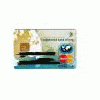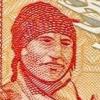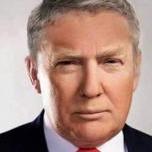
|
Leaderboard
Popular Content
Showing content with the highest reputation since 06/02/2025 in all areas
-
You know amend, it takes oxygen to allow the human brain to function in the thinking and reasoning mode. Yours is so far up your keister you're not getting O2. If you think all those international laws are suppose to keep a country from retaliating when a few thousand of its citizens are murdered in cold blood then you really are delusional. In your world it may be fine for a nation to openly threaten the US and Israel with annihilation and openly call for death to American and Israel for 50+ years while killing over 1000 US troops and citizens, but NOT in my world. These 7th century goat humpers are so filled with hatred for most of the world there is no chance of any treaty or agreement that they will honor. Speaking of honor, seems like you may have checked yours at the door with the statements you posted.16 points
-
pathetic for sure infuriating Try to read all the articles. Put the pieces together. what is the truth versus speculation. Factor in the global reset scenario. banking requirements / digital advancements wars / criminal elements prophecies / spiritual perspectives Necessary laws and requirements patience. Patience. Patience cause what choice is there I have hope and a belief. still I wait. will not sell Much peace to all in the same boat as myself16 points
-
Central bank of Iran is no longer functioning.... following cyber attack, all of iranian funds are frozen........Supreme Leader and whats left of leadership are in Russia..... Prince of Iran Reza Pahlavi says the Islamic republic of Iran is collapsing and coming to an end...... He then goes on to state that What has begun is irreversible, The future is bright and together we will navigate this sharp turn History"15 points
-
14 points
-
Mr Barzani, the federal court has already rules that. The Federal Government (Baghdad) will handle all the oil sales through the National Oil Company SOMO. The Federal Government will pay all salaries of public servants and Peshmerga forces. Kurdistan Cannot continue selling oil behind Baghdad back. This is why the HCL has taken so long.! Go hcl Go profits sharing Go purchasing power13 points
-
They've been at it now for 21 years...in another 5 to 10 years ought to do it!?!?!? it is... After WWII Germany & Japan were up and running with globally recognized currencies in less than 5 years. I've run out of derogatory remarks to describe the Iraqi political criminal machine.13 points
-
Interesting timing.!!! The Basel III endgame reforms, which are the final components of Basel III, are generally expected to take effect on July 1, 2025 too. Let’s go Iraq 🇮🇶12 points
-
Markz had a guy on there today who is running for governor of California - i think his name was Herm Lewis. Very much a patriot. At the end, he mentioned the dinar and said he believed neutralizing Iran would help bring an RV. He apparently has had dinar for 20 years and felt that the ride is coming to an end.12 points
-
"Iraq will enter the era of fully electronic tax collection by the middle of this year. This will strengthen the confidence of global financial institutions and investment banks that Iraq is moving towards a more transparent and professional economy, using advanced methods that ensure economic prosperity." Looks like 2025 is the year to finalize pending Laws, programs and projects. June 2025 Moving along to 2026 Get it done Go RV $1:3+12 points
-
This is the IMF telling Iraq to get off the derrieres and let's get moving with the RV in political speak. They are basically giving the green light to RV while at the same time criticizing what needs to be done.11 points
-
Maybe Sudani should write a “sternly worded” letter, that should scare them🔥11 points
-
Separation of power refers to the three co-equal branches of the US Govt. Care to take a guess at what they are? Separation of powers does not mean Military versus everyone else. The Military command falls under the Executive Branch which the is led by the Commander in Chief also known as the President of the United States. Probably not because like most, they view America as the United States (The country is not called America btw, its called the United States as termed in the United States Constitution. America comprises of two continents with many different countries - North America and South America. Thus which is why its the Untied States of America because its on the the North American continent. Brazilians, Mexicans, Peruvians, Colombians, Canadians are all Americans because that is the continent they live on not the country they live in.) Anyways, I digress. The United States has 3 co-equal branches of Government according to the US Constitution which the Commander in Chief is also the President of the United States. He is a both a member of the military and a civilian at the same time per the US Constitution. So before speaking up on what is or what is not "American" a little more research into the US Constitution is needed. Funny how it is only a political "error" when one disagrees with the current US Administration. Where was your disagreement when the Administration bombed and aspirin factory? Its no more a political error as a bird can fly ax high as an elephant's eye.11 points
-
Long overdue in my very humble opinion. This regime is the radical extreme of a religion that has steadfastly refused to "coexist" with any other for 1500 years. If the UN was worth spit, this problem would have been addressed long ago.11 points
-
I think news like this , should be celebrated for a hell of lot longer than one day !!11 points
-
Many of the patriots who believe Netanyahu is Cabal also believe in the Replacement Theory - that the Church has replaced Israel. NOT TRUE!! Read the Book of Revelation. So many ignorant of the Word following these false teachers.11 points
-
11 points
-
no doubt, many middle east countries are glad to see this happen since Iran is behind most of the problems in the ME11 points
-
economy Today, 22:30 | 55 The era of the digital republic has begun. Iraq goes cashless, and the Central Bank imposes its authority as the "ruler of the country" - Urgent Baghdad Today - Baghdad With increasing pressure on cash liquidity in Iraq, the government has begun expanding its reliance on electronic payment systems within state institutions. This move, which may appear on the surface to be a technical measure to modernize transactions, is essentially linked—according to experts—to an attempt to contain a growing financial crisis by reducing reliance on paper money and keeping as much of the money within the banking system as possible. Al-Tamimi: The decision is not an administrative update, but rather an attempt to control liquidity. Nasser Al-Tamimi, a financial and economic expert, confirmed to Baghdad Today that "the government's decision to impose electronic financial transactions within institutions is not merely a regulatory move, but rather a direct response to the cash liquidity crisis the country is currently suffering from." Al-Tamimi explained that "the government seeks to reduce demand for cash by converting transactions into digital electronic formats, which will ease pressure on the public treasury." He added, "The crisis may push authorities to make new decisions, such as imposing electronic payments in broader sectors outside of state institutions, or even restricting the withdrawal of full salaries from credit cards, allowing employees to withdraw only a portion while the remainder remains within the banking system." He noted that "such measures are typically used in countries facing severe liquidity shortages, but they could spark widespread controversy if implemented without prior preparation." Saleh: The economy is moving from financial dominance to monetary influence. In a deeper reading of this trend, Dr. Mazhar Mohammed Saleh, the Prime Minister's advisor for economic affairs , believes in his latest statements that Iraq is witnessing a gradual shift in the balance of power between fiscal policy (concerned with spending and revenues) and monetary policy (concerned with liquidity management and stability), in what he calls "soft monetary dominance." Saleh says, "The Central Bank of Iraq has begun to play a pivotal role in managing macroeconomic balances, after years of pressure to directly finance the budget deficit." He points out that "this shift does not mean the bank is monopolizing economic decision-making, but rather indicates a decline in the dominance of traditional fiscal policy, which was based entirely on oil revenues." He continues: "In light of weak non-oil revenues and the state's ballooning liabilities, fiscal policy is no longer able to adapt to periodic shocks, forcing the Central Bank to bear the brunt of the burden by managing the exchange rate, injecting liquidity, and intervening in the market." He believes that this transformation is taking place gradually and flexibly, so that monetary policy does not lose its independence, as guaranteed by Law No. 56 of 2004. Overlapping policies and resorting to unconventional tools. Saleh points out that one manifestation of this phase is the use of electronic payment tools as an indirect means of circulating cash and easing pressure on the paper currency. He explains that "transforming transactions to a digital system enables the state to keep liquidity under control and gives the central bank room to maneuver in the face of inflation and market fluctuations, without resorting to printing currency or excessive monetary expansion." However, this overlap between monetary and fiscal policy is not new. The central bank has previously used tools such as bond discounting and indirectly financing the government, which undermined its independence in previous periods. What's new today, according to Saleh, is that the bank has become more disciplined and is showing a resistance to overstepping its boundaries, even if it conflicts with the expansionary policies desired by the executive branch. Will the state succeed in this transformation? Observers believe that the success of this path depends on the state's ability to ensure a balance between imposing electronic tools and achieving financial and social justice. Digital payment systems cannot be imposed without improving infrastructure and creating genuine confidence in the banking system, especially in rural areas and regions that lack regular access to banking services. Al-Tamimi also warns that any attempt to restrict cash withdrawals without realistic alternatives could lead to the creation of a parallel market or raise people's fears of losing control over their money. He adds, "If the state wants this approach to succeed, it must clearly clarify its objectives and ensure citizens' protection from any exploitation or banking loopholes." Between a pressing liquidity crisis and the Central Bank's attempt to impose new stability rules, Iraq appears to be moving toward a "soft monetary model," in which the state attempts to regulate the economy through electronic rather than traditional tools. However, this path, while necessary, requires a delicate balance between reform and gradualism, and between authority and trust, to prevent the move from becoming a new burden on citizens rather than a way out of an old crisis. https://baghdadtoday.news/275911-.html11 points
-
Everybody knows it takes 25 years to figure out your monetary value Or you could buy a pencil and notebook and do it in a few days but whatever11 points
-
Iraqi Dinar Future Prediction During the Trump's Administration ( 2025 & Beyond ) The Iraqi dinar was a powerhouse in international markets before the 1991 Gulf War, trading at more than $3 against the US dollar. The currency took a steep dive to around 1,310 IQD per USD, and this drop became a defining moment in its history. This decline made many people wonder about its comeback potential. Iraq is OPEC’s second-largest oil producer and has large oil reserves, which has led to many big predictions about the dinar. Some analysts believe the dinar could reach $5.89, while others predict even bigger jumps—up to 1,000 times its current value—in the upcoming political cycle. Let’s get into the Iraqi dinar’s realistic value prospects from 2025 onwards. Several significant factors could shape its future. These include US-Iraq military partnerships through 2026, support from the International Monetary Fund, and Iraq’s efforts to modernize its banking system. Global energy needs through 2025 could also play a vital role in the currency’s direction. Geopolitical Landscape Under Trump Trump’s administration has brought fundamental changes to Middle East policy. His team emphasizes stronger bonds with traditional allies while taking a tough position against Iran’s growing influence in the region. US Middle East Strategy Trump’s Middle East strategy rests on three most important priorities: Reinstating maximum pressure on Iran through economic sanctions Reinforcing support for Israel’s defense capabilities Expanding the Abraham Accords for regional normalization The US keeps about 2,500 troops in Iraq. These forces help advise Iraqi security forces and ensure ISIS stays defeated. A recent agreement maps out a two-phase exit plan for US forces. The first troops will leave by September 2025, followed by a complete withdrawal by September 2026. Regional Power Dynamics Trump’s policies have altered the map of regional power. His approach favors Israel and Gulf countries while limiting Iran’s influence. The US has deepened its military cooperation with Iraq through major equipment sales and defense agreements. The US-Iraq relationship faces several hurdles amid regional tensions. Iran-backed militias have embedded themselves in Iraq’s state institutions. This creates a complex situation where neither country serves as a true ally or enemy. This reality shapes both security partnerships and economic ties between the two nations. Iraq-Iran Relations Iraq depends heavily on Iran for economic ties, especially energy imports. The country spends about $900 million monthly on Iranian goods, with half going to electricity and gas. US sanctions have complicated this economic relationship, forcing Iraq to find creative payment solutions. Iraq’s government walks a tightrope between US alliance and Iranian influence. Recent events show Iraq trying to protect its independence while managing these competing interests. Trump’s team has warned Iraq about possible economic penalties if it fails to control Iran-backed groups or continues helping Iran dodge dollar restrictions. International Support for Iraqi Currency International financial institutions provide strong backing for Iraq’s economic stability and currency management. The International Monetary Fund approved a USD 5.34 billion loan over three years. This loan helps Iraq manage lower oil prices and maintain sustainable debt levels. IMF and World Bank Involvement The IMF’s support goes beyond money, as shown in its recent Article IV consultation in May 2024. The fund’s executive board stressed that Iraq needs to adjust its spending gradually to keep debt stable and build up fiscal reserves. The World Bank works through the Iraq Reform, Recovery and Reconstruction Fund (I3RF) to provide financial and technical help. Germany, the UK, Canada, and Sweden fund this platform that enables financing and policy discussions. Global Trading Partners Iraq’s trade relationships show its growing role in the global economy. The country is the world’s 36th largest exporter, with exports worth USD 123 billion. Its key trading partners include: India (USD 38.8 billion in exports) China (USD 34 billion in exports) United States (USD 10.3 billion in exports) South Korea (USD 8.21 billion in exports) The United Arab Emirates leads as Iraq’s biggest global trading partner, with yearly trade worth over USD 27 billion. Their relationship grows stronger through ongoing talks and joint projects in many sectors. Foreign Investment Trends Foreign direct investment shows remarkable growth, reaching record levels in 2023. Major investments include: Qatar Investment: USD 5 billion (June 2023) Saudi Arabia PIF: USD 3 billion (May 2023) TotalEnergies: USD 27 billion (April 2023) Iraq’s Central Bank has modernized its banking sector by making reforms to improve financial services. These changes help solve the biggest problem of underfunded state-owned banks and strengthen private commercial banking. The IMF emphasizes that Iraq needs to speed up the restructuring of large state-owned banks. They also want to modernize private banking to make correspondent banking relationships easier. Regional Economic Integration Regional economic cooperation now plays a vital role in Iraq’s financial world. New partnerships with neighboring countries have reshaped trade patterns throughout the Middle East. Gulf Cooperation Council Relations GCC-Iraqi relations have shown remarkable progress. We focused on building stronger diplomatic and economic ties. The Gulf Cooperation Council’s Secretary General stressed that Iraq’s stability and sovereignty remain top priorities for member states. Saudi Arabia and the United Arab Emirates have invested USD 6 billion in Iraq’s development projects, which shows their commitment to this partnership. The UAE stands out as a strategic collaborator with a strong focus on building infrastructure. Abu Dhabi Ports Group has signed major maritime agreements with Iraq’s General Company for Ports. Masdar, the Emirati energy company, has started solar projects to help solve Iraq’s power shortages. Cross-border Trade Developments Strong cross-border connections help expand regional influence and trade. Iraq’s market of 40 million consumers draws attention from nearby countries. The Development Road project connects Iraq with Turkey and the Gulf states through new trade routes. Trade volumes show this growing connection: Turkey-Iraq trade: USD 20 billion annually Iran-Iraq trade: USD 8.9 billion in exports (2022) UAE-Iraq bilateral trade: USD 27 billion annually Banking System Integration The banking sector is modernizing through digital transformation. Iraq’s Central Bank has created detailed regulations for digital payments to reduce cash use and improve financial inclusion. This move to digital banking helps solve the problems of low penetration rates and limited branch networks. The Financial Inclusion Project, backed by international partners, works to develop inclusive financial services in four main areas: Supporting financial service providers Implementing financial literacy programs Enhancing regulatory frameworks Improving access for women-led businesses Iraq’s banking modernization matches regional standards. The Central Bank reviews more than 70 digital banking license applications. This change shows Iraq’s dedication to building an efficient financial system within the Middle Eastern economy. Security and Political Stability Security concerns and political instability continue to shape Iraq’s economy as Trump’s administration looks toward 2025. The nation’s stability faces major challenges due to the complex relationship between domestic politics and regional tensions. Internal Political Dynamics Iraq’s political system struggles with major challenges that stem from the Muhasasa Ta’ifia system that started in 2005. This power-sharing system was meant to stop ethnic and sectarian divisions. Instead, it led to poor governance and systemic corruption. The public showed their frustration through mass protests, and voter participation dropped to 44% in the last election. Trump’s Iraq team plans to place more aggressive U.S. State Department officials in Baghdad. These tactically skilled ambassadors will negotiate firmly with Iraqi officials. Iraqi leaders should expect a more business-like relationship with Washington. Their ties with Tehran will play a vital role in diplomatic relations. Regional Security Challenges The security situation reveals several critical issues: Iran-backed militia groups launched more than 165 attacks on U.S. troops since the Israel-Hamas conflict started Turkish military operations grew stronger in northern Iraq and included drone strikes against Kurdistan Workers Party positions ISIS keeps its presence in Al Anbar province and northern regions, though with reduced capabilities The Trump administration prefers to use financial intelligence and sanctions instead of military force. The U.S. strategy targets the economic resources of Iran-backed militias, specifically their access to Iraq’s USD 150 billion annual budget. Impact on Currency Stability Political uncertainty directly affects the Iraqi dinar’s value in several ways. The parallel exchange rate stays about 15% lower than the official rate, even with strong foreign exchange reserves. This gap exists because of increased scrutiny of Iraqi banking transactions and U.S. restrictions on dollar transactions for certain Iraqi banks. The next Trump administration’s policies could put more pressure on the parallel exchange rate. Iraq has enough U.S. dollars through official channels. However, regional tensions and domestic political uncertainty continue to affect currency stability. Economic experts say recent exchange rate changes come from political rather than economic factors. Traders settle accounts between creditors and debtors as regional instability creates uncertainty. Future Scenarios and Timelines The Iraqi dinar’s trajectory shows multiple possible scenarios based on economic indicators and political developments. Several interconnected factors determine the currency’s future value, ranging from oil prices to regional stability. Short-term Projections The USD/IQD exchange rate will likely decline gradually through 2025. Experts expect the rate to move from 1,276.640 in March 2025 to 1,217.448 by December 2025. The Central Bank of Iraq’s commitment to stability supports this projection, following their previous adjustment to 1,460 dinars per dollar. The World Bank predicts 8.9% overall growth once OPEC+ quotas end. Iraq’s oil production has surpassed its pre-pandemic level of 4.6 million barrels daily. The country’s oil price projection for 2025 stands at USD 39.50 per barrel. Medium-term Possibilities Economic forecasts beyond 2025 point to continued fluctuations. The exchange rate projections reveal: First quarter 2026: 1,239.217 IQD per USD Mid-2026: 1,190.047 IQD per USD Year-end 2026: 1,152.120 IQD per USD The IMF stresses that Iraq needs steady fiscal adjustments to achieve stability. The country’s fiscal consolidation depends on customs and revenue administration reforms, along with a complete Treasury Single Account implementation. Long-term Outlook Different scenarios emerge for the Iraqi dinar from 2028 to 2030. Exchange rate forecasts suggest potential movement toward 987.790 IQD per USD by January 2030. Several factors will determine this trajectory: Oil Industry Development: Untapped oil reserves exploration Improved production capabilities Global energy market position Political Reforms: The Trump administration focuses on selective sanctions against Iraqi banks while conditioning waivers for Iranian energy purchases. This policy could soon affect Iraq’s economic partnerships and currency stability. Iraq’s substantial gold bullion and cash reserves protect against severe currency depreciation. The dinar’s position could strengthen if structural reforms line up with political stability. Without a doubt, these reforms’ success relies on international support and the country’s political will to make needed changes. Conclusion The Iraqi dinar’s future depends on several connected factors. The currency dropped substantially from 3 IQD per USD before 1991 to about 1,310 IQD per USD today. Yet many positive signs point to its potential growth beyond 2025. Iraq’s position as OPEC’s second-largest oil producer and strong international support drive steady economic improvements. The IMF’s ongoing assistance and growing trade partnerships with the UAE and Saudi Arabia create stability. Security issues pose major challenges, especially when Iran-backed militia activities and regional tensions are involved. However, Iraq’s strong foreign exchange reserves and gold bullion holdings protect against sharp currency swings. The Trump administration’s focused strategy toward Iranian influence and banking reforms could alter the map of finance. Market forecasts show the USD/IQD exchange rate might improve from 1,276.640 in March 2025 to 1,217.448 by December 2025. The outlook through 2030 looks brighter and depends on successful reforms, political stability, and continued international backing. Iraq’s untapped oil reserves and modern banking sector offer hope for the dinar’s future value11 points
-
Hope it’s sooner or Al-Sudani will get voted out for sure.11 points
-
No budget = No accountability, thus the corruption and pilfering of Iraq's assets continues ............. Personally, I don't think that the budget is related to the RV, beyond highlighting the incompetence of the Iraqi government and Parliament ....................... Just sayin' ....................11 points
-
REMEMBER, no one really knows what will happen, or when. They're simply stating their opinions based on what they perceive to be happening in Iraq... So, take everything with a grain of salt ... RON 6-28-2025 Frank26 Question: ["Will there be a time limit to exchange? Will the CBI allow us to see $4.81?"] I believe there will be a time frame, but it'll be way down the road and yeah, $4.81 is where they want to cap it. You'll see it because it's going to be happening at that time. You'll see it as it floats. 6-29-2025 MarkZ I did finally get in touch with one of my redemption center/wealth management folks. He was told they are not working this weekend but be in early on Monday. They were told to enjoy the weekend because they would be working some very long hours over the next 2 weeks. I hope that means us.More BS..! 6-29-2025 Frank26 [Article of the budget] 12-2c the judge is holding on to it because he's protecting the new exchange rate. Even the gazette, two of them, are holding 12-2c. Why? It's the new exchange rate...This judge holds the future of Iraq's monetary reform in his hands.10 points
-
REMEMBER, no one really knows what will happen, or when. They're simply stating their opinions based on what they perceive to be happening in Iraq... So, take everything with a grain of salt ... RON 6-28-2025 Militia Man One of the things that is a component of a reinstatement revaluation is low inflation. It's a sign for the IMF, World Bank, everybody that they maintain stable inflation and reduce it consistently is a very good sign that they're ready for an adjustment. It doesn't mean they will do it, it just means they have a key component. 6-28-2025 Pimpy I have 5 million Iraqi dinar. You think I want them to delete the zeros? No I don't. I want them to leave the zeros on there and give it a huge exchange rate. I'd be happy if they went dollar for dollar. I'd be happy if they did it at $0.25. I really would. I'd still make out like a champ. 6-28-2025 Fnu Lnu Banking in Iraq is not stable now but they are diligently working on the solution. 6-28-2025 TNT Tony It was announced on Iraqi TV that their purchasing power would increase. They have been told that the RV will happen...Sat. 28 June. Tony thinks they may be waiting for the 5:00 Pacific time close of Forex. He hopes they aren’t waiting for 5:00 Hawaii time. It could happen overnight...Nothing remains to be done. The bank screens were blank this morning, then flickering later in the day. They (banks) thought that was a good sign. 6-28-2025 Sandy Ingram For Iraq, achieving Article VIII status would require deep reforms including closing the gap between the official and parallel exchange rates, cleaning up its banking sector, digitizing transactions, enforcing anti-money laundering and counter-terrorist financing standards and ending informal restrictions on capital movement. Once benchmarks are met and sustained Iraq can formally request the IMF executive board to approve its transition from Article XIV...to Article VIII signaling full integration into the global financial system. This step would boost investor confidence, attract foreign capital and support long-term economic growth. 6-28-2025 Frank26 I'm interested to see what happens on July 1st with the digitalization process. I still can't figure out how they're going to put 1310 in the digital display.10 points
-
Go ahead, close it...guess whatever passes for an Iranian Navy over there won't be around for very much longer either.10 points
-
I believe most of the Middle East countries are HAPPY that the bullies of region will not have Nuclear capabilities…. They just can’t say it publicly!!!10 points
-
10 points
-
There should be no negotiation. These people have e been lying to the universe since before Jesus walked the earth. They are despicable leadership wise in every aspect!10 points
-
This all a bunch of shiite commode. They deserve all the TP they can get. One little two little three Iranian generals dead, four little five little six little Iranian generals blown into a grave,, seven little eight little nine little ten little Iranian generals don't want the job no more.10 points
-
Talk about what ??? There is nothing to talk about ............... You (the Iranians) had your chance to talk and negotiate a deal in good faith, but NO !!! Now that the Iranian régime is getting pounded into the sand and now, they want to talk about a solution, a dialogue, an end to the destruction ??? The Iranian regime has no cards to play. They have nothing but a bunch of rhetoric, desperate talk and or false dialogue ............ Go regime change in Tehran ........... Just sayin' .............10 points
-
Baghdad has indeed initiated steps to reform its tax and customs system, recognizing the critical need to diversify its revenue sources beyond oil and address pervasive corruption. However, estimating precisely how long these reforms will take is challenging due to the inherent complexities and deep-rooted issues in Iraq. Here's a breakdown of what we know and why it's a long-term endeavor: Current Initiatives and Goals: Electronic Customs System: The General Customs Authority announced plans to expand its electronic customs system to all centers by the end of 2025. This is a significant step towards improving efficiency and transparency. Advanced Technologies and AI: Iraq is looking to introduce advanced technologies and artificial intelligence to enhance customs operations. Increased Customs Duties: In April 2025, Iraq approved new customs duties, including a 60% additional duty on certain imported plastic items for four years, and a 10% increase on rebar (reinforcement steel). These measures aim to protect domestic industries and boost non-oil revenues. Diversifying Non-Oil Revenues: A key objective is to increase non-oil revenues, which reached $8.2 billion in 2024. This involves revising customs duties and potentially introducing or raising excise taxes. IMF Recommendations: The IMF, in its May 2025 concluding statement, urged Iraq to increase non-oil revenues by revising customs duties and introducing or raising excise taxes. This indicates international pressure and support for these reforms. WTO Accession: Iraq's renewed push for WTO accession, with a fourth Working Party meeting tentatively slated for early 2025, signals a commitment to harmonizing domestic legislation with international best practices, which includes customs and trade policies. Challenges and Why it Will Take Time: Deep-Rooted Corruption: This is perhaps the biggest impediment. The currency auction, for instance, has been a major channel for smuggling hard currency. Reforming tax and customs systems requires dismantling entrenched corrupt networks, which is a slow and politically sensitive process. Political Instability and Weak Governance: Iraq continues to grapple with political instability, inter-elite conflicts, and a fragmented governance structure. These factors often delay or derail reform efforts. Dependence on Oil: The overwhelming reliance on oil revenues (around 90% of government revenue) has historically created less urgency for comprehensive tax reform. While the current government recognizes the need for diversification, shifting this economic paradigm takes time. Weak Private Sector: An underdeveloped private sector and reliance on state-funded projects mean a smaller and less diverse tax base outside of oil. Developing this sector is crucial for sustainable tax reform. Institutional Limitations: The General Commission for Taxes (GCT) and customs authorities have institutional limitations, including capacity issues, which require long-term capacity building and technical assistance. The IMF has provided a three-year capacity development plan for the GCT. Public Resistance to New Taxes: Any efforts to introduce or increase taxes on the general population can face significant public resistance, especially given the existing economic challenges. Legislative and Bureaucratic Hurdles: Enacting and implementing new tax laws and customs regulations involves complex legislative processes and bureaucratic changes that can be slow. Realistic Timeline: Given these factors, a comprehensive and effective reform of Iraq's tax and customs system is not a quick fix. While initial steps and some visible changes (like new customs duties or electronic system expansion) can be seen in the short to medium term (1-3 years), achieving truly transparent, efficient, and diversified revenue generation will likely take many years, possibly 5-10 years or even longer. Success hinges on sustained political will, a reduction in corruption, significant investment in institutional capacity building, and a broader economic diversification strategy that creates a more robust non-oil private sector. AI Overview.10 points
-
“The Operations Director expressed optimism about Iraq's economic prospects, predicting the country will become "a massive success story" within the next five to ten years.” Hurry up Iraq 🇮🇶 can’t wait 5 to 10 years….. Get it done.!10 points
-
Security / Arab and International Today, 03:41 | 719 Hebrew media reports the assassination of Mohammad Bagheri, Chief of Staff of the Iranian Army. Baghdad Today - Follow-up Hebrew media reported, on Friday (June 13, 2025), news of the assassination of Iranian Army Chief of Staff Mohammad Bagheri. Media outlets, monitored by Baghdad Today, reported that "the Israeli Air Force succeeded in assassinating the Chief of Staff of the Iranian Army, Mohammad Bagheri, in the strike it launched against Tehran." The Israeli army launched a preemptive military operation against targets north of Tehran in the early hours of today https://baghdadtoday.news/276174-.html10 points
-
10 points
-
Dinar "RV" Meters ( Updated: 6/11/2025 ) Gurus who feel Dinar will RV within days... 26% Gurus who feel the Dinar will NOT "Change" until certain "things" are accomplished... 74% Gurus who feel the Dinar will FLOAT "slowly" upward instead of RV... 37% Official Master List of Possible Major " To Do's ": Moved to IMF Article VIII HCL passed/imp. [Temp 11/2014] [agreed in spirit 12-2014] Erbil Agreement Impl. Election Law (DONE! 12/2013 | Amend Dec 2019) UNSC Chapter 7 (Done?? summer-2013/ Dec/2017 moved to ch VI?? June-2018 Resolution 1487: CBI released from Sanction list. Voted 2-22-2022 Resolution 2621. 8-12-2023 - Iraq appears out of Ch VII but U.S. has not release them) UNSC Chapter 6 (began 12/2017 ?) Article 140 impl. (Supreme Court Support 5/2018 - must impl.) (8/2019 Federal Court clarifies constitutional force) (National census complete - preliminary results Nov/2024) Economic/Banking laws passed (more needed)(12-2017) Investment laws (Voted! 10/2015 Printed 1/2016) Power Sharing (Done!! 10/2014) Internationally accepted Dinar GOI Seated (10/2014) [Done - Fully seated 6-6-2020] Tariff Law (partial) CBI & Market rate within 2%-90 days (start ~Mar. 15 2018? Nation wide start ~Nov. 2018) E.O 13303 (Done 12/2017 - Biden renewed May 2023) Law of Financial Administration/Financial Management Law (First vote May 2019) | Amend Dec. 2019 CBI Auctions Stopped (partly Done - June 2020? to Jan/2024) (Moved to local banks - Jan/2025) From another site10 points
-
“Economic Analysis: The Rise of the Dollar Against the Iraqi Dinar Causes, Impacts, and Possible Solutions” By Shatha Editor BY: Shatha Kalel Recently, there has been a rise in the exchange rate of the US dollar against the Iraqi dinar. The main markets in Baghdad and Basra closed with a selling price of 142,250 dinars and a buying price of 141,250 dinars. In Erbil, the selling price reached 141,000 dinars and the buying price 140,000 dinars. These increases reflect growing pressure on the Iraqi dinar, raising concerns about inflation, economic stability, and the purchasing power of citizens. Causes of the Dollar’s Rise 1. Decrease in Dollar Supply The Central Bank of Iraq has taken measures to restrict the sale of dollars in order to curb smuggling and money laundering. This has led to a reduction in dollar availability in local markets, pushing prices up due to scarcity. 2. Smuggling and Sanctions Evasion Reports indicate that dollars sold through Iraq’s currency auctions are being smuggled into neighboring countries like Iran and Syria, which are under U.S. sanctions. The U.S. Treasury and the Federal Reserve have pressured Iraq to tighten control, limiting access to the dollar through unofficial channels. 3. Political and Institutional Instability The ongoing political instability in Iraq weakens investor confidence. Unclear policies and continuous changes in government reduce foreign investment, further devaluing the dinar. 4. Dependence on Imports Iraq heavily relies on imported goods, which are paid for in dollars. As the dinar weakens, the cost of these imports rises, increasing the demand for dollars. 5. Structural Economic Challenges Iraq’s economy depends almost entirely on oil exports, making it vulnerable to global oil price fluctuations. Non-oil sectors remain underdeveloped and do not provide alternative sources of hard currency. Impacts of the Rising Dollar 1. Inflation and Increased Cost of Living The rise in the dollar leads to higher prices for imported goods, driving up inflation and placing additional burdens on low-income households. 2. Decline in Purchasing Power As the value of the dinar drops, the salaries and savings of citizens lose value, especially when purchasing essential goods like food and medicine. 3. Pressure on the Business Sector Companies that rely on imported materials or products face higher costs, which may reduce profit margins or force them to raise prices, potentially reducing consumer demand. 4. Widening Social Gap Those with access to dollars or dollar-linked assets benefit from the exchange rate changes, while others suffer, increasing the gap between social classes. Possible Solutions 1. Enhance Transparency in Dollar Sales The Central Bank must gain better control over currency auctions and ensure that dollars are reaching legitimate traders and companies. 2. Support Non-Oil Exports Iraq must diversify its economy by investing in agriculture, industry, and services to reduce reliance on imports and create alternative sources of foreign currency. 3. Strengthen the Banking Sector Improving the banking system, expanding digital services, and complying with international standards can reduce reliance on the black market and help stabilize the exchange rate. 4. Tighten Border Control Border monitoring should be enhanced, and modern technologies should be adopted to track the movement of goods and currency to combat smuggling. 5. Reform Subsidy and Social Welfare Systems In the short term, targeted cash assistance or social protection programs can help ease the burden on poorer groups until long-term reforms are in place. 6. Cooperate with International Partners Iraq should strengthen its cooperation with the United States, the International Monetary Fund (IMF), and other partners to improve financial governance, which can help restore confidence and provide technical and financial support. Conclusion The rise of the dollar against the dinar reflects deep structural and governance challenges in the Iraqi economy. Although external pressures exist, the real solutions lie in internal reforms. Combating corruption, diversifying the economy, and enhancing financial transparency can help stabilize the currency and protect citizens from further economic decline. Overcoming this crisis requires swift and coordinated action from the government, the Central Bank, and international partners. Economic Studies Unit / North America Office Al-Rabetah Center for Strategic Research and Studies10 points
-
10 points
-
Oh my goodness!! How many times are they going to reorganize the reorganization of the 5th overhaul? Good grief getter done.10 points
-
10 points
-
REMEMBER, no one really knows what will happen, or when. They're simply stating their opinions based on what they perceive to be happening in Iraq... So, take everything with a grain of salt ... RON 6-6-2025 Samson Article: "Among them are Meta and Google. The Minister of Communications: International companies are interested in the Iraqi digital corridor project" 6-6-2025 Militia Man These guys are really gearing to integrate into the international world. Are they going to do it at 1310? Well if they were going to why didn't they do that 2 years ago or back in 2018. We don't know. The bottom line is they probably weren't going to because it just wouldn't work.10 points
-
My attitude has ALWAYS been that this was too god to be true,But if it was to happen, I wouldn't want to say that "if only". So, I bought just enough that would make me happy if it did, but not too much that would make me sorry ir it did. I think many Dinarians have done the same. Those that left Dinarland are somewhat like an alcholholic who may have " overindulged" (overbought) and got detoxed. I have no way of knowing, but I am sure that there are many that traveled my road and bought the way I did (I hope) and until I see ANY difference, I will continue with my comments and maybe prevent aby "DINARHOLIC" from overindulging. I admire and respect your faith in this ride and and hope you understand and respect my view of this ride as well and still remain friends. I was in my 60's when I boarded this ride and almost 87 now. I recently set a jumping off time of the end of this year and at this age, enough is enough and it matter much for me to miss my GRAVY TRAIN. So, having said this, I wish you and every other DV family members better news than what I have seen.. Just don't overindulge.10 points
-
10 points
-
and i thought id miss out if i didnt hurry and acquire iqd many years ago , man was i in for an education cheers LB10 points
-
I suspect with in the next 10 days the Iranian Nuke facilities will be eliminated.. Jusy my thoughts..CL10 points
-
The Iranians can't or don't even control the air space over Tehran, it sounds like the Israeli jets roam Iran at will and now the Iranians/Insanians threaten to close the Straits of Hormuz ??? .............. LOL x 1000 ................... Any of the Mullahs, The Supreme Leader and others in the regime know that the Israels can take them out at any time. Go regime change in Tehran !!! ........................ Just sayin' ................9 points
















